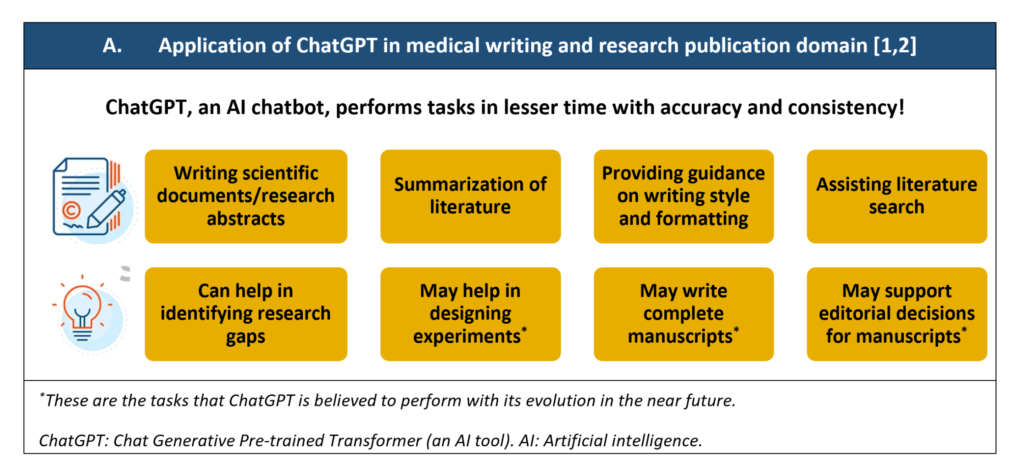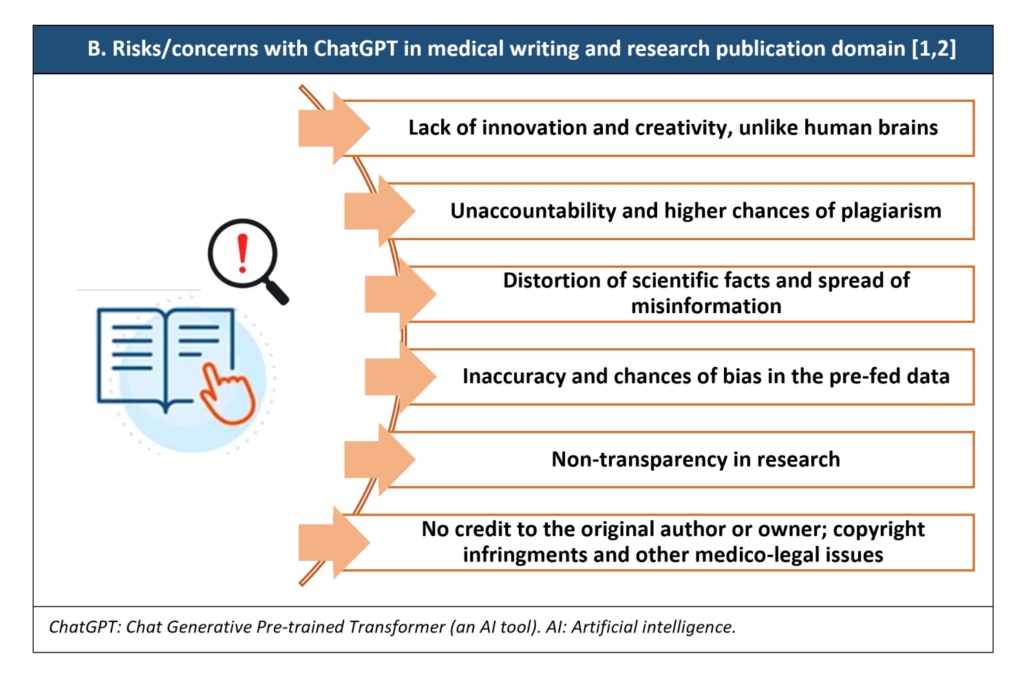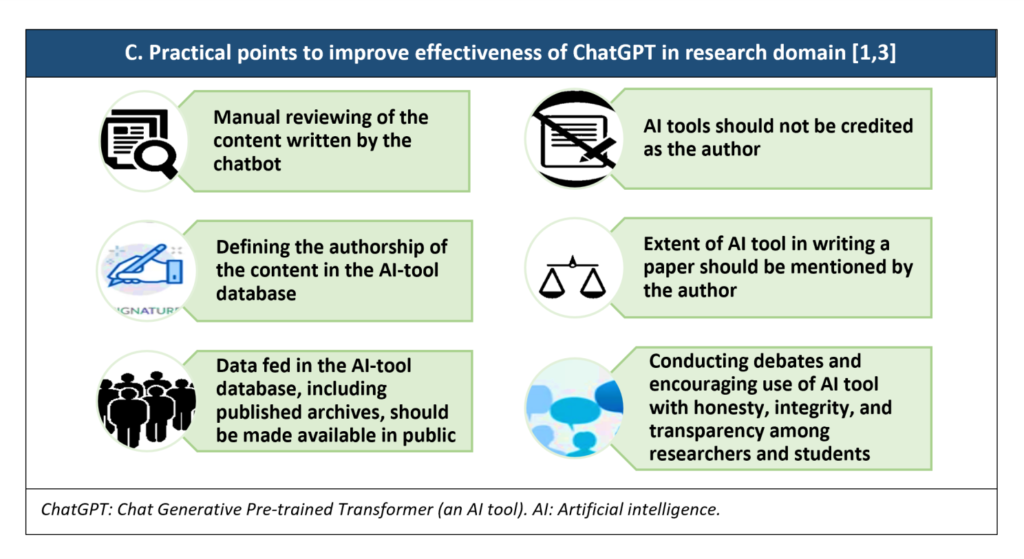
An artificial intelligence (AI) chatbot called ChatGPT has been released last year and has already become the talk of the town! Literature on this tool abounds, highlighting the potential ability of conversational AI to revolutionize medical writing, research, and publishing domains, like other data-driven functional domains, by helping humans in creating accurate and consistent documents in lesser time and improving efficiency of the process [1,2]. However, the application of AI chatbots is also reported to have concerns and consequences in the field of research [1].
Conversational AI in the form of large language models (LLMs) are systems that can understand, interpret, and generate human language. ChatGPT (Chat Generative Pre-trained Transformer) is a LLM that works on a pre-fed extensive database. ChatGPT can create drafts for medical and regulatory documents, essays, and summarized abstracts, and can even perform statistical analyses [1,2]. Its application in the field of medical writing and research publication is outlined in Graphic A.
Although this technology has wide-ranging application in medical writing and research publication domains, its usage is associated with various ethical, legal, and accuracy-related, and bias-related concerns (Graphic B) [1,2]. Thus, it is of utmost importance that the usage of AI tools in research domain is investigated and researched more to know about the impact of its capabilities, with further innovation and developments, on research work [1].
In the current scenario, one way to improvise the efficacy of AI chatbot ChatGPT is to use them specifically under the guidance of human intelligence and form some ground rules over their usage for writing scientific information so as prevent the spread of misinformation and distortion of facts (Graphic C) [1,3].



AI in medical writing and research: Implications for practice
- Guidance provided by AI tools might be helpful in optimization of the skills needed for academic writing. On one hand, it will improve writing and reasoning skills of the students; on the other hand, it will not be necessary to have an expertise in conducting literature search. Such rebalancing of the necessary skill sets might be helpful in improving the overall performance.
- Usage of conversational AI tools in the future might affect the scientific writing process at all levels from generation of hypotheses, methodology, data analysis and interpretation, to writing of manuscripts and reviewing the documents. However, using AI tools wisely may guide and speed-up the complete process by shortening the time taken at each step.
References
- Van Dis EAM, Bollen J, Zuidema W, et al. ChatGPT: Five priorities for research. Nature. 2023;614(7947):224-26.
- Biswas S. ChatGPT and the future of medical writing. Radiology. 2023;223312. Doi:10.1148/radiol.223312
- Tools such as ChatGPT threaten transparent science; here are our ground rules for their use. Nature. 2023;613(7945):612. Doi: 10.1038/d41586-023-00191-1.
